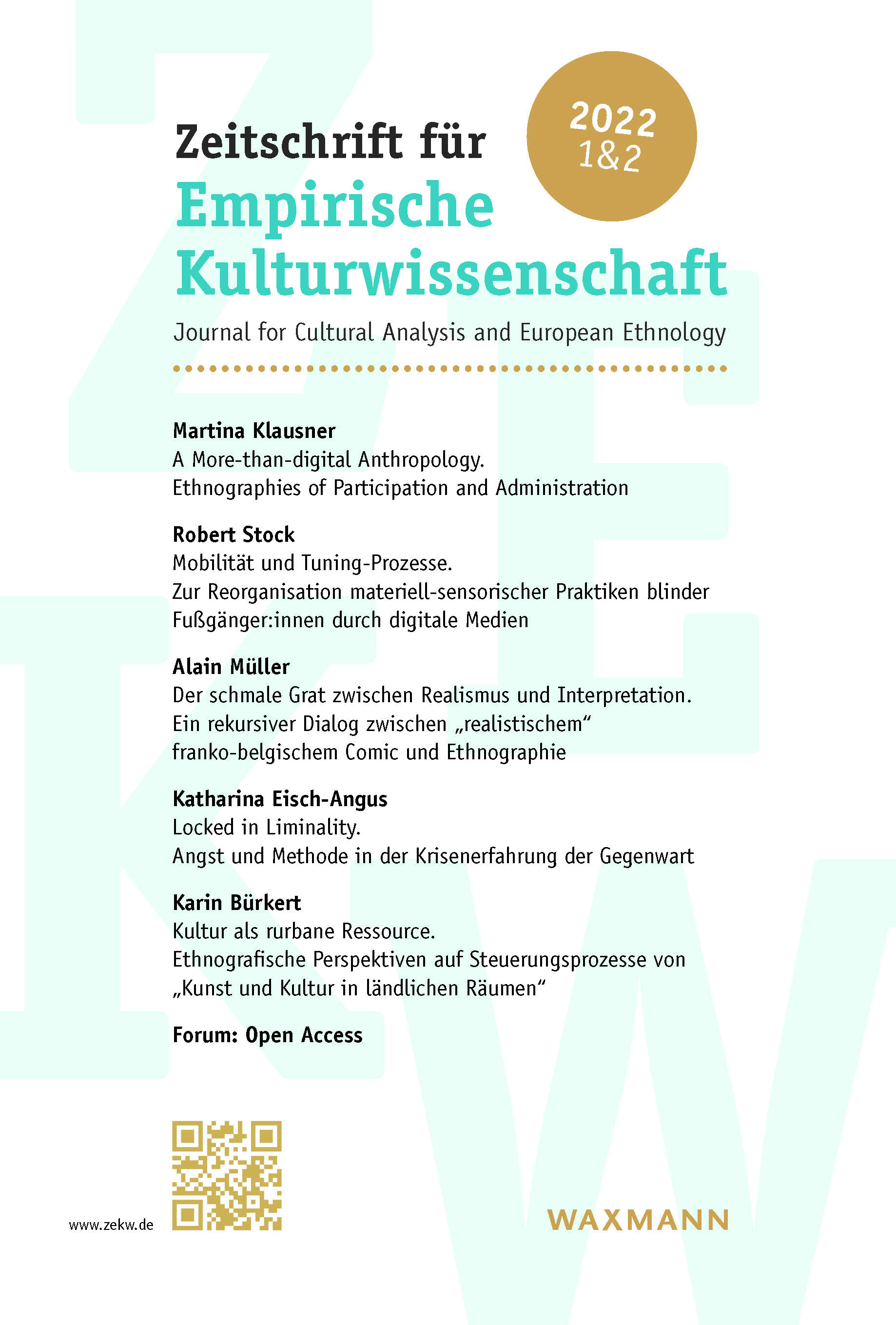Locked in Liminality
Angst und Methode in der Krisenerfahrung der Gegenwart
Schlagworte:
Intersubjectivity, emergent ethnography, permanent state of exception, CoronaAbstract
Against the backdrop of proclamations of a society of fear, risk and panic from the late 1970s to the present, the article takes a lead from fears as productive agents within the ethnographic process. Through the focal lens of pandemic everyday experience, and deploying essayistic ways of thinking and writing, it draws attention to the intersubjective and intercorporeal practice of meaning-making as conceptualised in phenomenology, psychoanalysis and pragmatist semiotics, and outlines its relevance for emergent interpretation and reflexivity. On an interactive micro-level, the essay explores the moment of ‘in-between’ that is sparked by surprise or crisis, and opens a transient ‘third milieu’ where experience can be shared, whilst cultural meaning is in ongoing renegotiation. The idea of this ambivalent space, as marked by indeterminate creative possibilities merging with fear and uncertainty, is followed further through Corona communication and narration, and investigated in its ambiguous effects of consolidating agency, and perpetuating anxiety and ideological exclusion by way of paranoid ‘infection’. The article inquires into the dynamic conceptual potentials of liminality theory, which it transgresses towards a late-capitalist state of permanent exception: What happens when everyday actors find themselves overpowered by paradoxical emotional requirements that cannot be resolved into new sociality? How can ethnographers, with view to their own involvement into the meshes of everyday fears, retain an empathic, yet empirically grounded understanding of pandemic experience and beyond?
Downloads
Veröffentlicht
Ausgabe
Rubrik
Lizenz
Copyright (c) 2022 Zeitschrift für Empirische Kulturwissenschaft

Dieses Werk steht unter der Lizenz Creative Commons Namensnennung 4.0 International.

